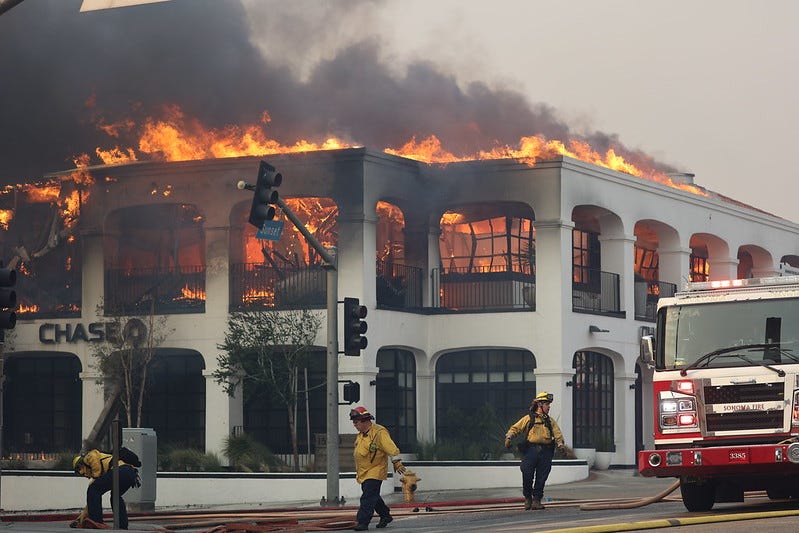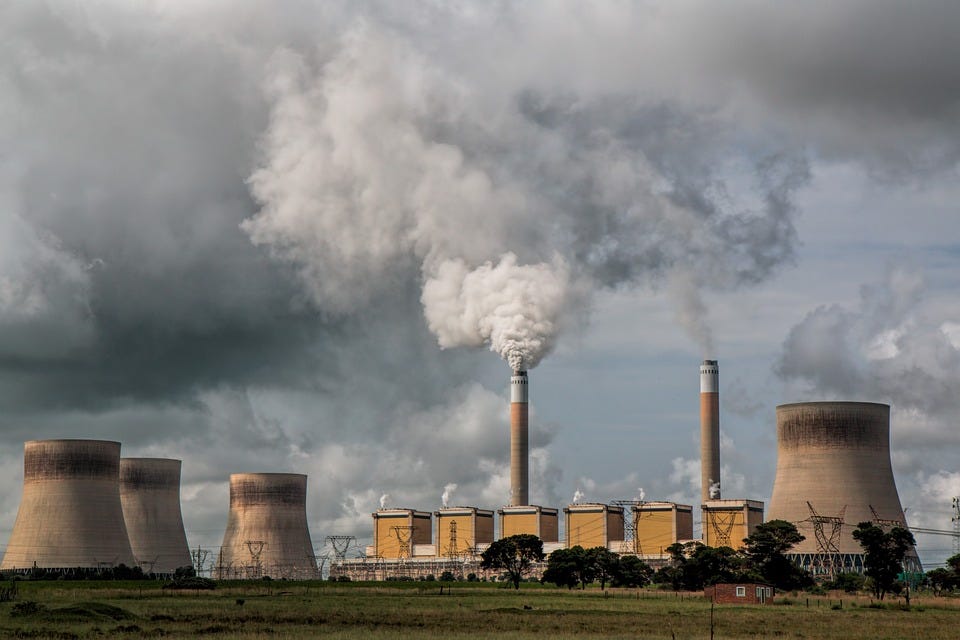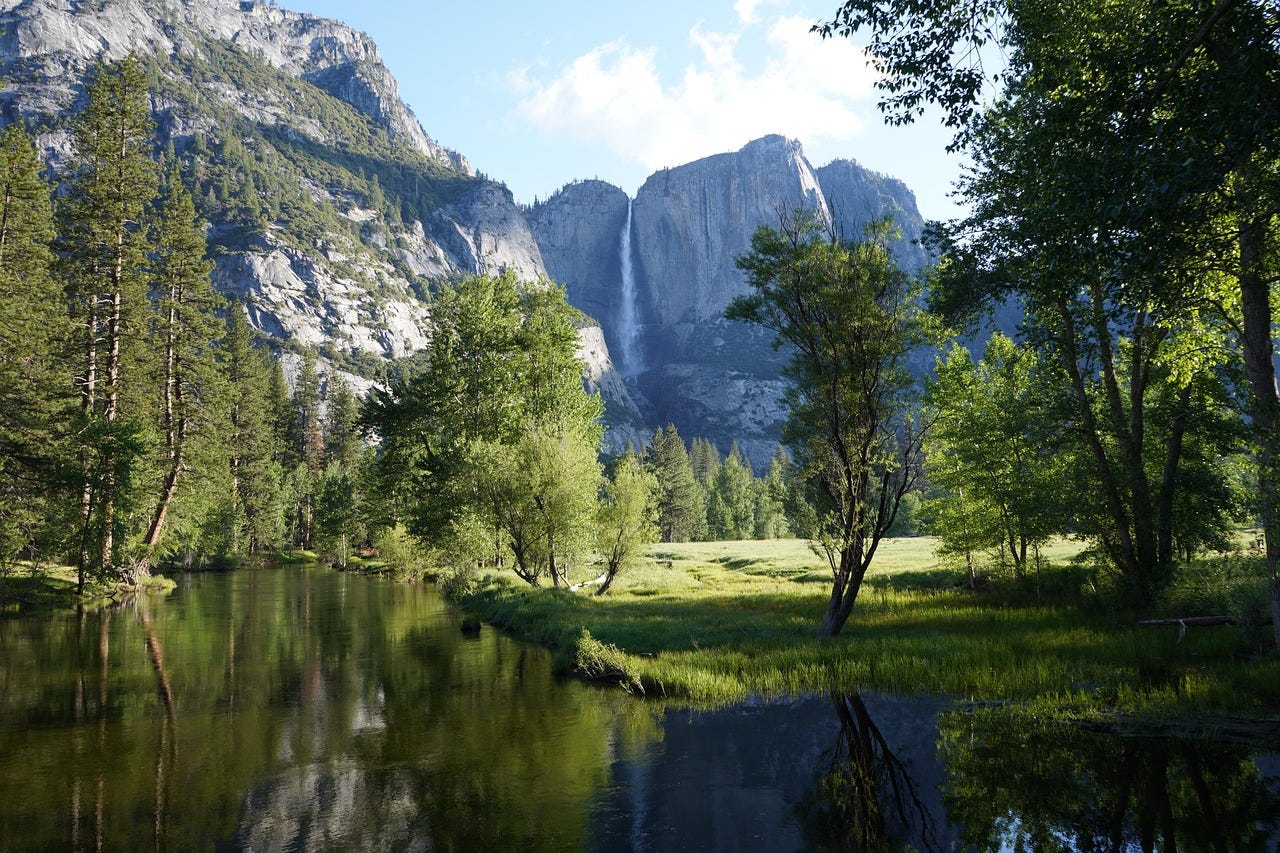California sticks to its climate guns with cap-and-trade program
Coming soon: David Callaway's first book, a political thriller titled 'Unregulated Militia'
Today’s edition of Callaway Climate Insights is free for all our readers. We really want to bring you the best and latest in climate finance from around the world. Please subscribe now.
California Gov. Gavin Newsom this week followed through on his promise to extend the state’s controversial cap-and-trade program through 2045, but with none of the major revisions many climate advocates had hoped for.
The program, which Newsom rebranded “cap-and-invest,” currently generates about $4 billion a year by requiring polluters to buy allowances for the harmful emissions they release into the air, money that is re-invested in energy transition programs and also given back to taxpayers in the form of credits on their utility bills.
Now comes the hard part of pushing the reauthorization through the California legislature, something that is expected to generate national headlines as Newsom gears up to campaign for president in a few years.
One major sticking point will be the 25% carve out of the revenue generated — about $1 billion — for the even more controversial high-speed rail project to link Los Angeles and San Francisco by electric train. President Donald Trump has promised that he will never allow that project to happen. Another promise is that about $1.5 billion of the funds will go to investing in CALFIRE, the state’s fire-fighting agency, which has been gutted with cuts recently.
Sitting on top of all of this is the projected $12 billion deficit Newsom expects California to run in the next year, mostly because of harmful tariffs and cuts to federal spending from the White House. At a time when cost-cutting is going to be in demand, the cap-and-invest program will be a very high-profile stand for combatting climate change at a time when forces to stop it are at their strongest.
Don’t forget to contact me directly if you have suggestions or ideas at dcallaway@callawayclimateinsights.com.
Follow us . . . .
Twitter | LinkedIn | Facebook | Instagram
Coming soon: David Callaway's first book
. . . . We take this break from global climate finance for a special announcement. I’m thrilled to tell you that my first book, a fiction, political thriller titled “Unregulated Militia,” will be coming out at the end of the month.
It’s about America’s fascination with guns and the emergence of drones in warfare and terrorism, taking place about a decade in the future during the middle of a presidential transition. The hero is, of course, a journalist, but one far younger and far prettier than me.
I wrote it to read like a screenplay, so it moves far and fast as the action and intrigue develops. I've been working on it for a few years now in my spare time from Callaway Climate Insights and was lucky enough to find a publisher last year in Pegasus Publishing of Cambridge, UK.
As many of you know, the pre-order sales are vital in helping to determine the success of the book and whether it will be carried on store bookshelves. Currently, it’s available on the Pegasus website, as well as online at Barnes and Noble (both links are below; the Barnes and Noble one in U.S. dollars).
Please take a look at these links for a more extensive summary of the book’s plot and if you’re in the market for some summer reading, I’d love to hear what you think about Unregulated Militia. Now, back to the climate.
‘The canary is dying’ - climate change comes for property insurance

. . . . The property insurance market, in the U.S. and in many parts of the world, is starting to unravel in the face of ravaging global warming, with huge implications for the real estate market behind it, writes Mark Hulbert. Citing a spate of recent statements by a former California insurance commissioner and even the head of the U.S. Federal Reserve, Hulbert argues that without adequate government backup and incentives for insurers, there is real potential they will just pull out of many markets exposed to wildfires, flooding and violent storms. While that has started to happen in parts of California and Florida, it has yet to spread to the mortgage market because of state backup plans. Those plans are generally underfunded, however.
Thursday’s subscriber insights
Stalling growth in U.S., Europe casts shadow over EV revolution
. . . . Lead with the good news. That’s what the International Energy Agency did this week when it said total electric vehicle sales are expected to reach one in four of all automobiles and light trucks by the end of this year and displace up to five million barrels of oil a day (about 5% of daily market) by 2030.
While heartening, most of those sales are still in China and smaller emerging
markets in Asia and Latin America, with sales somewhat stalled in Europe and slashed in the U.S. because of new White House policies.
The IEA cut in half its expectations for cars and light trucks in the U.S. by 2030, to about 20% of the market. It cited efforts by the White House and GOP-led Congress to cut subsidies for EVs as well as the impact of the Trump tariffs on global uncertainty.
But what was more concerning to us is the slowdown in Europe. While part of it could be chalked up to the sudden distaste among European auto buyers for Teslas, the stagnation in sales seems to be more tied to deteriorating economic conditions overall. That in turn makes people hesitant to pay up for EVs, which are still more expensive than traditional cars.
In the end, it’s going to come down to competitive pricing and battery duration, both of which are still heading in the right direction, according to the IEA. The electric vehicle revolution is still on. It’s just going to take a bit longer than everyone first
assumed a few years ago.
Editor’s picks: EPA fails to publish pollution report; plus, USDA to restore crucial websites
Watch the video: For the first time in nearly three decades, the Environment Protection Agency has not published a mandatory annual report detailing the amount of climate pollution produced in the U.S. CBS News Climate Unit senior coordinating producer Tracy Wholf reports on the data related to the report that was released through a Freedom of Information Act request.
USDA will restore some web resources – amid lawsuit
The U.S. Department of Agriculture is restoring some climate change-related webpages to its websites after it was sued over the deletions in February. The Associated Press reports the lawsuit on behalf of the Northeast Organic Farming Association of New York, the Natural Resources Defense Council and the Environmental Working Group claimed that taking what webpages down violated rules related to citizens’ access to government information. The USDA had removed online resources for climate-smart farming, conservation practices, rural clean energy projects and access to federal loans related to those areas. The case is scheduled for a hearing next week in federal court in New York.
Latest findings: New research, studies and projects
What you don’t know can hurt you
Climate and nature risks are distinct but interrelated, write the authors of a paper titled Nature and Climate Risk in Asset Prices. Exposure to physical risk from climate change or loss of ecosystem services arises from a company’s dependency on climate and nature, while exposure to transition risk depends on the impact of a company on climate or nature. The authors consider four categories of risk-nature dependence, climate dependence, nature impact, and climate impact-and study whether financial markets price them. Among their findings, they report that “climate betas increasingly reflect corporate climate impact, with higher-impact firms showing greater sensitivity. Furthermore, climate betas became more aligned with firms' nature dependence.” Authors: Chiara Colesanti Senni, University of Zurich - Department of Finance; Skand Goel, Independent; and Markus Leippold, University of Zurich; Swiss Finance Institute.
More of the latest research:
Words to live by . . . .
“May is the month of expectation, the month of wishes, the month of hope.” — Emily Brontë.






